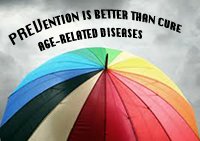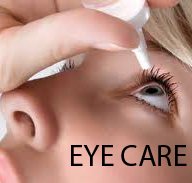|
Hospital DeliriumAvoiding Hospital Delirium
Hospital Delirium is a very disturbing condition that should be avoided if possible. If it occurs carers and family members should look out for signs of dementia in the person afflicted further down the line. This is because a high percentage of people with hospital delirium go on to get dementia and, in fact, the confusion provoked by the stay in hospital might be the first signs that families have of early stages of Alzheimer’s or other types of dementia. We can all identify with confusionWhile many people have their own hilarious stories about waking up dazed or confused when they are away from home, when it happens in the hospital, it's not so funny. In fact, it can be terrifying and downright dangerous. As one hospital administrator said, "A delirious patient happens almost every day." And he describes their experience as "sheer terror, like their worst nightmare." This phenomenon is most likely to affect patients who have had surgery, especially those in intensive care. And it occurs most frequently in older patients. In fact, about one out of three patients over the age of 70 will develop hallucinations that seem horrifyingly real. It's a cruel condition, darkened by the shadow of dementia. Records show that patients who already have dementia are at higher risk of hospital delirium, and healthy patients who lapse into temporary delirium are at higher risk of developing dementia later in life. For the elderly, the outlook is even worse. About three out of four patients with hospital delirium are placed in assisted care, and about one in ten dies within a month. Watch Out For SignsFortunately, there are steps that family and hospital care- givers can take to reduce the risk of delirium. Step one: recognize factors that increase risk.
For instance, these drugs have been linked to hospital delirium:
Besides drugs, it is thought that hospital delirium may also be caused by the surgery itself, by the anesthetic in a frail and elderly patient, or by the superbug (MRSA) or other hospital bound bacteria. In fact many of the cases of “hospital delirium” experienced by elderly patients might actually be delirium tremens, if the patient was a heavy drinker, as s/he will have been taken abruptly off alcohol if admitted to hospital.
HELP is at handDr. Sharon Inouye and colleagues at Yale University School of Medicine, in the US, have created Hospital Elder Life Program (HELP) to address issues like hospital delirium. When possible, before being admitted to the hospital, elderly patients can check with hospital administrators to see if they've incorporated the HELP program as part of their patient care regimen. Also, families can go to the HELP website (hospitalelderlifeprogram.org) for tips on helping elderly patients avoid confusion. Little things can make a big difference — such as bringing in familiar objects or photos from home, making sure glasses and dentures are handy, giving an occasional shoulder or foot massage, and preparing a detailed medical information sheet about the patient for doctors and nurses. And of course, it always helps to have a reassuring immediate family member close at hand. Top of hospital Delirium |
Translate this Site
Search This Site
Subscribe to E-zine
Relevant Pages
Mental Health Issues
Prevent Dementia - Top Five Tips
Ten Steps to Avoid Hospital Delirium
Recommended Supplements
Supplement you can trust for depression, stress and anxiety
Supplement you can trust to preserve your memory
Supplement you can trust to get a good night's sleep






 But even with no drug use, hospital delirium can be triggered by disorientation caused by disruption of daily routines, isolation from immediate family and pets, a strange room, room changes, constant night-time activity, interrupted sleep, and repeated tests.
Patients and family members should not assume that hospital personnel are on the lookout for delirium. In fact, this is where family can play an important role. Doctors and nurses who are unfamiliar with a patient are less likely to spot behavior that deviates from a patient's norm.
These are symptoms family members should look for:
But even with no drug use, hospital delirium can be triggered by disorientation caused by disruption of daily routines, isolation from immediate family and pets, a strange room, room changes, constant night-time activity, interrupted sleep, and repeated tests.
Patients and family members should not assume that hospital personnel are on the lookout for delirium. In fact, this is where family can play an important role. Doctors and nurses who are unfamiliar with a patient are less likely to spot behavior that deviates from a patient's norm.
These are symptoms family members should look for:







